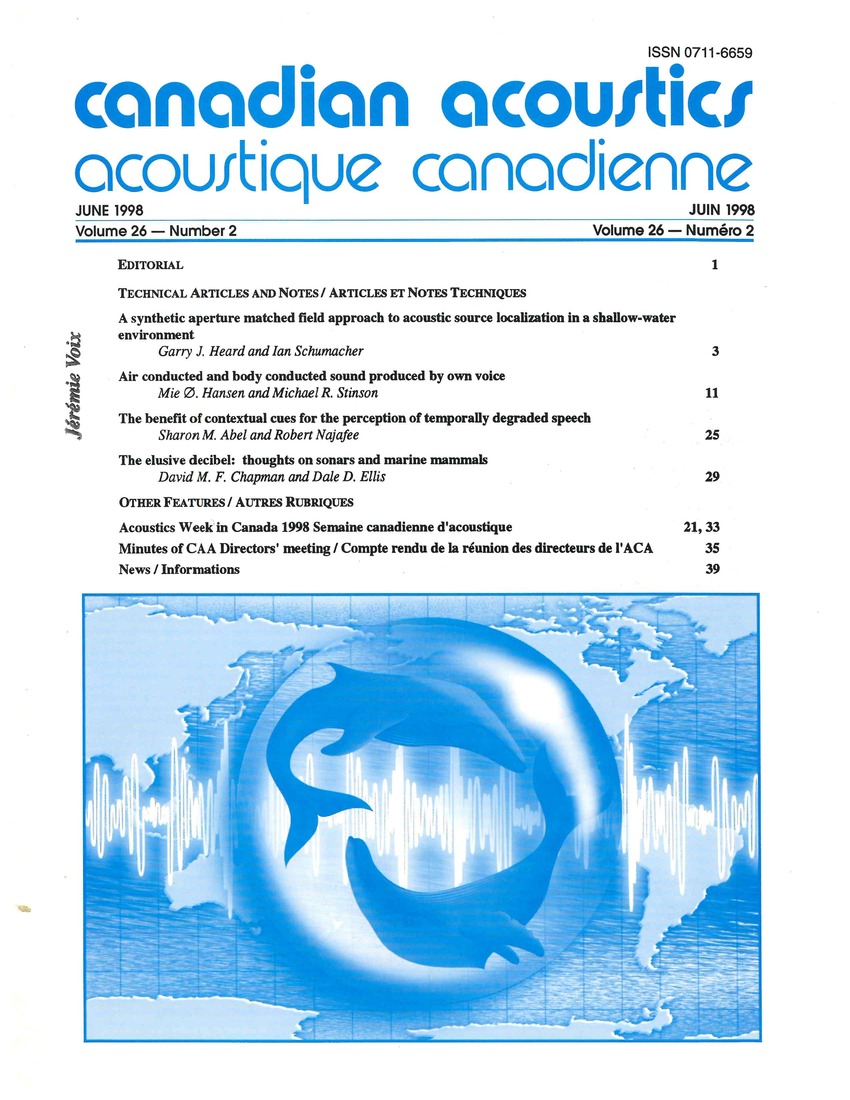Benefit of contextual cues for the perception of temporally degraded speech
Mots-clés :
Speech processing, Speech recognition, Contextual cuesRésumé
L'effet d'indices contextuels sur la compréhension de la parole dégradée a été étudié. Deux groupes de sujets, âges respectivement de 20-25 et 50-59 ans, ont participé à cette étude. Trois listes de 50 phrases ont été présentées, k chacune des oreilles, de façon continue ou interrompue avec un taux de 8/s ou 2/s. Pour la moitié des phrases de chacune des listes, le dernier mot était hautement prévisible sur la base du contexte et, dans la seconde moitié, peu prévisible. La reconnaissance du mot final décroît avec l'interruption, et ce davantage pour le taux de 2/s. Le contexte s'est avéré compensatoire. Les sujets plus âgés ne performent pas moins bien que les plus jeunes. Les facteurs pouvant potentiellement expUqués ces résultats sont discutés.Fichiers supplémentaires
Publié-e
Comment citer
Numéro
Rubrique
Licence
Author Licensing Addendum
This Licensing Addendum ("Addendum") is entered into between the undersigned Author(s) and Canadian Acoustics journal published by the Canadian Acoustical Association (hereinafter referred to as the "Publisher"). The Author(s) and the Publisher agree as follows:
-
Retained Rights: The Author(s) retain(s) the following rights:
- The right to reproduce, distribute, and publicly display the Work on the Author's personal website or the website of the Author's institution.
- The right to use the Work in the Author's teaching activities and presentations.
- The right to include the Work in a compilation for the Author's personal use, not for sale.
-
Grant of License: The Author(s) grant(s) to the Publisher a worldwide exclusive license to publish, reproduce, distribute, and display the Work in Canadian Acoustics and any other formats and media deemed appropriate by the Publisher.
-
Attribution: The Publisher agrees to include proper attribution to the Author(s) in all publications and reproductions of the Work.
-
No Conflict: This Addendum is intended to be in harmony with, and not in conflict with, the terms and conditions of the original agreement entered into between the Author(s) and the Publisher.
-
Copyright Clause: Copyright on articles is held by the Author(s). The corresponding Author has the right to grant on behalf of all Authors and does grant on behalf of all Authors, a worldwide exclusive license to the Publisher and its licensees in perpetuity, in all forms, formats, and media (whether known now or created in the future), including but not limited to the rights to publish, reproduce, distribute, display, store, translate, create adaptations, reprints, include within collections, and create summaries, extracts, and/or abstracts of the Contribution.


